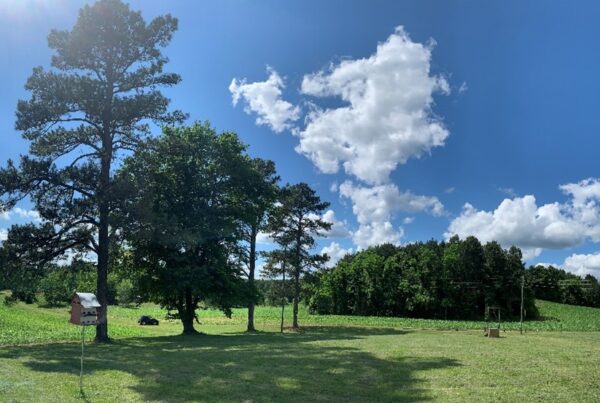USDA opens Coronavirus Food Assistance Program (CFAP)
$16 Billion in Direct Payments for Farmers
Applications open Tuesday May 26
On May 19, the USDA announced the opening of the Coronavirus Food Assistance Program (CFAP), which includes direct payments to farmers for pandemic-related economic losses. The program opens for application on May 26, first come first served. While all farmers are eligible, the program contains structural flaws that may put beginning, smaller-scale diversified, limited resource, minority, and direct-market producer applicants at a disadvantage. Yet, we must put our hats in the ring – let’s make our voices heard and ensure that smaller scale farmers serving local and regional food systems – even more essential in the time of coronavirus – are duly served. If you qualify and need assistance, apply now!
See Farmer Signup information here: https://sustainableagriculture.net/blog/covid-cfap-signup/. For other COVID-19 relief resources see https://sustainableagriculture.net/our-work/nsac-response-to-covid-19/.
Last Call: 2020 Conservation Stewardship Program
Apply by May 29, 2020 – it is a simple, one-page form
Would you like to make your farm more resilient to weather extremes and other stresses, more profitable, and at the same time help address climate change, water quality, and other resource concerns? If so, the Conservation Stewardship Program (CSP) is for you!
The CSP has undergone a number of changes under the 2018 Farm bill. These include a funding set-aside for organic and transitioning producers; increased payments for advanced crop rotations, cover cropping, and management intensive rotational grazing; and a new Conservation Assessment and Ranking Tool for application ranking. For more on this program, click CSP info, and CSP in Virginia.
It is especially important this year for organic and sustainable producers to apply for CSP contracts, in order to help evaluate whether the current CSP fulfills the original purpose of the program – to remunerate the best land stewards for the invaluable ecosystem services you provide to society and the planet, and to help you adopt new cutting edge conservation activities.
NSAC and its member groups want to help you access this program, and we want to hear your stories regarding how the application process went, and how effectively your CSP contract helps you meet your conservation goals. If you plan to enroll, or are considering it and have questions, please contact Mark Schonbeck at schonbeckmark@gmail.com, or 540-0835-7664.
New COVID-19 Legislation Goes Part of the Way to Help Family Farmers
Action now can help it go further
In the second week of May, the US House of Representatives unveiled a new coronavirus relief package, the Health and Economic Recovery Omnibus Emergency Solutions (HEROES) Act, which would invest $3 trillion investment in keeping vital parts of the US economy afloat and functioning through the pandemic. The bill takes important steps to expand food assistance, to provide PPE and other protections for workers including farm workers, and to support local food systems, beginning farmers, and specialty crop producers. It falls short on debt relief and emergency capital for producers, and lacks specifics in supporting historically underserved producers and farmers who serve local market venues. The bill must also pass the Senate as well as the House before becoming law.
For an in-depth analysis of this new legislative development, see the National Sustainable Agriculture Coalition (NSAC) blog post at https://sustainableagriculture.net/blog/will-the-heroes-act-rescue-farmers/.
Take Action
The US Senate can take important steps to improve the HEROES act for family farmers and the nation’s food system. Now is the time to contact your Senators to urge them to support four specific “marker bills” designed to strengthen the HEROES act:
- Food Assistance for Kids and Families During COVID-19 Act of 2020 (R 6445 / S. 3563) – Representative Jahana Hayes (D-CT); Senator Bob Casey (D-PA). This bill would authorize public-private partnerships between the USDA, authorized retailers and community based organizations to support food delivery to SNAP users and provide funding to support grocery delivery for program participants who are seniors, immunocompromised individuals and others unable to travel safely to a retail food outlet such as a grocery store or farmers market.
- New Markets for State Inspection Meat and Poultry Act (2814) – Senator Rounds (R-SD). This bill would allow meat and poultry products inspected by Food Safety Inspection Service (FSIS) approved state Meat and Poultry Inspection (MPI) programs to be sold across state lines. Currently, there are 27 states with inspection programs “at least equal to” federal meat and/or poultry inspection programs.
- Relief for America’s Small Farmers Act (3602, HR 6683) – Senator Kirsten Gillibrand (D-NY); Representative Sean-Patrick Maloney (D-NY). The bill would forgive USDA FSA direct loan debt up to $250,000 for farmers with adjusted gross income up to $300,000 (over the past 5 years). Unlike many other loan forgiveness programs, this bill would ensure that farmers who receive forgiveness maintain their ability to borrow from FSA in the future, as well as eliminate tax liability for the forgiven debt.
- Farmers Feeding Families – Coronavirus Response Act (R. 6721/ S.3655) – Representatives Kim Schrier (D-WA), Cathy McMorris Rogers (R-WA), and Chellie Pingree (D-ME); Senator Bob Casey (D-PA). This bill will bolster the ability of food banks and food assistance programs to meet the needs of growing numbers of food insecure, while also providing much needed additional funding for purchases from small and medium farmers, by providing funds directly to States and state agencies and their food-bank partners. Includes funding set-asides to ensure targeted purchases of food from producers who rely on local agricultural food marketing—such as farmers’ markets, farm-to-table restaurants and farm-to-school programs.
Virginia’s Senators Tim Kaine and Mark Warner have been strong champions for local and regional food systems and food security for all. Ask them this week to help the Senate to build a better HEROES Act. Pick one (or more) of the above initiatives that seems most relevant and pertinent to your, your farming operation, and your community. Then call or write each Senator and use the following template to develop a simple message:
“Dear Senator ___,
[Introduce yourself and your work]
[include a basic description of the bill and the bill number, which can be found above]
[connect your work to the content in the bill, noting local impacts and value.
We ask you to please cosponsor [bill name and number].
Thank you for your time and consideration.”
NOTE: with Senate offices mostly closed during the pandemic, it may be difficult to reach a staffer with whom to talk directly. Two good options are to leave a voice mail (option 1 on the menu) at 202-224-2023 (Senator Warner) or 202-224-4024 (Senator Kaine), or to send an e-mail by logging onto the Senator’s website and using the “contact” page to write send your e-mail message.
Local Action Opportunity
USDA Announces Cooperative Agreements for
Community Compost and Food Waste Reduction
Are you sick and tired of seeing good organic matter go to waste in your local community – or worse yet, get buried in the landfill to generate methane, a greenhouse gas 20+ times as potent as carbon dioxide? Talk with your municipal government about this opportunity to explore a better way!
USDA is making $900,000 available for local governments to host a Community Compost and Food Waste Reduction (CCFWR) pilot project for fiscal year 2020. The cooperative agreements will support projects that develop and test strategies for planning and implementing municipal compost plans and food waste reduction plans. The agreements are offered through USDA’s Office of Urban Agriculture and Innovative Production.
USDA will accept applications on Grants.gov until midnight June 26, 2020. For more information, visit: https://www.nrcs.usda.gov/wps/portal/nrcs/detail/national/newsroom/releases/?cid=NRCSEPRD1583831.
Resources
Navigating Economic Relief Resources for Farmers During the Pandemic
https://sustainableagriculture.net/blog/covid-19-farmer-resources-flag-pace-law/.
With Congress passing new legislation to help the nation’s economy through the current public health crisis, and recent confusion over eligibility rules for Small Business Administration (SBA) programs including Payroll Protection Program (PPP) and Economic Injury Disaster Loans (EIDL), it can be hard to know what is available and how to access it.
This on-line resource, developed by NSAC based on the work of Farmers Legal Action Network (FLAG) and the Food and Beverage Law Center at Pace University, and updated periodically based on legislative and administrative developments, outlines:
- Direct financial aid to producers
- Other sources of aid that farmers can access
- Flexibility in farm loan and crop insurance programs
- State, local, and tribal relief efforts – link to FLAG guide
- How to avoid scams and report discrimination in aid programs
National Guide to Finding Local Food
https://sustainableagriculture.net/blog/national-guide-to-finding-local-food/.
As the unfolding COVID-19 crisis disrupts nationwide supply chains, public demand for locally sourced, healthful food skyrockets, Community Supported Agriculture (CSA) program signups fill up and accrue waiting lists … and farmers scramble to learn e-commerce and get infrastructure in place for new, covid-safe direct marketing.
National Sustainable Agriculture Coalition (NSAC) has put together this vital new resource to empower individuals and families to (1) obtain the fresh, nutritious, local food they need to stay healthy; and (2) support farmers in their communities to weather the pandemic storm and make a decent living as they keep us all fed. Organized into nation-wide and state-by-state resources, this new Guide lists directories of local-marketing farms, interactive maps, food hubs, and other venues to help customers shop locally.
Organic Agriculture in the Face of a Changing Climate – a Toolkit for Consumers, Advocates, and Policy Makers.
Organic Farming Research Foundation (OFRF, https://ofrf.org).
This on-line media toolkit is based on OFRF’s extensive review of the scientific literature on how organic production methods can mitigate the impacts of climate disruption on agricultural through building resilience, and how they help slow climate change by sequestering carbon, and reducing greenhouse gas emissions. OFRF Communications Manager Vicki Lowell and Education and Research Program Manager Lauren Snyder have skillfully converted lengthy analysis into a succinct and accurate statement of basic principles, illustrated with animated diagrams, farmer stories, and links to in-depth reports on the OFRF website and elsewhere.
These materials can be used to educate your customer base on the importance of organic practices for the future of our global environment and climate, and to learn how you can take action and advocate for stronger policy support for a climate-friendly and climate-resilient agriculture. The toolkit is at https://ofrf.org/organicforclimate/.




